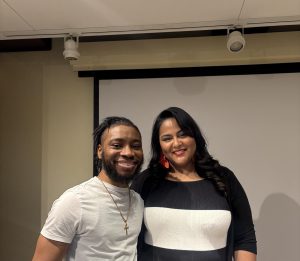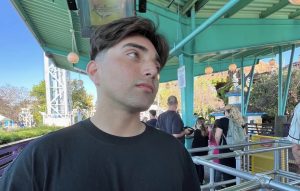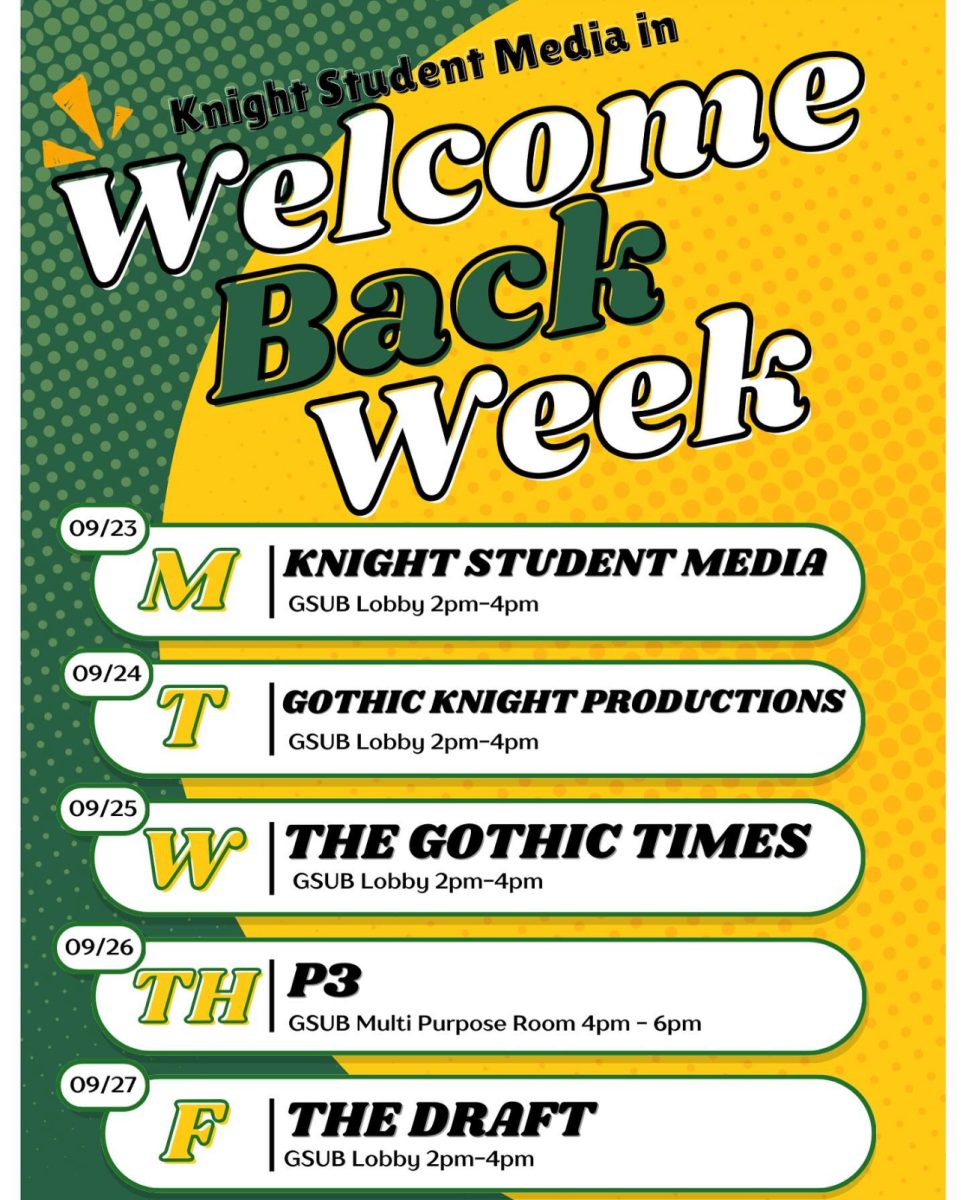It Still takes a Village to Raise a Child
June 7, 2016
We all need someone to listen to us and be there for us in our time of need. Support is a gift that is always appreciated and has the power to change one’s life. Oftentimes, children tend to look towards their families for emotional support and guidance. But what happens to the child who feels alone, misunderstood and is hopeless about her future? Is a ten year old really old enough to encourage herself to keep pushing forward no matter what life throws her way? Is she mature enough to take on the world all on her own?
In the urban community, it is sometimes rare that the residents learn about the power behind being creative beings. Parents and other adults barely encourage the future generation to become entrepreneurs. The youth is not taught that sometimes instead of finding themselves, they need to create themselves. Instead, they are taught how to go to school and work hard to get good grades, in hopes of one day getting a good job, making just enough money to pay their bills. Yes. Everyone wants to have a good job. But why teach the future generation how to live average lives, when they can be taught how to take the necessary steps in order for them to live the lives that they have always imagined?
As a resident of East Orange, Alycea Nightingale, 42, Entrepreneur, understands just how important it is to continue to mentor the youth in the urban community. Nightingale is the school owner and Business Consultant of her vocational school Educate the Block. She describes her school as “providing creative programs for creative communities.”
A vocational school, which is sometimes called a trade school or vocational college, is a post-secondary educational institution designed to provide vocational education, which consist of technical skills required to perform the tasks of a particular job. Vocational schools are traditionally distinguished from four year colleges by their focus on job-specific training to students who are typically bound for one of the skilled trades, rather than providing academic training for students pursuing careers in a professional discipline.
“Although we’re a vocational school, we strive to help people feel good about themselves,” says Nightingale.
Even though Nightingale started her school as a way to help build up other black people in the urban environments, Educate the Block does not discriminate. The programs and teachers cater to people of multiple ages, between the ages of eighteen to forty and beyond, as well as different ethnicities, such as Blacks, Caucasians, and Hispanics.
Educate the Block believes in providing emotional support for their students. Not only do they educate them and help them strengthen certain creative skills, according to Nightingale, “the school serves as a place where students can feel comfortable with being themselves.”
Nightingale says, “We feed them healthy food and offer creative writing workshops. We also do yoga just so they have a sense of mind, body, soul and spirit.”
For some residents of Jersey City, it is difficult to find a good paying job. Oftentimes, people have to go through work agencies in search of a job and hope that they will be provided permanent full-time positions, instead of seasonal and part-time positions.
“This program helps you find what you want to do, for both, unemployed and people who want to figure out what career they want to do. It helps you get your feet in the door for jobs” says Veronica Gonzalez, 34, Jersey City, NJ.
Veronica Gonzalez began attending “Educate the Block” in October 2015 as one of the options to meet a requirement for Welfare, which is a US government program that provides benefits to low-income individuals and families.
“I’m on welfare. They gave me the option of attending different schools and this is what caught my attention,” says Gonzalez.
From the beginning, Gonzalez was interested in attending Educate the Block.
“I received a flyer. This is the flyer. Bartending caught my eye. When I seen event planning, I completely forgot about Bartending. I’ve done three events for Ms. Nightingale…a luncheon, a wedding reception that had judges and a job fair,” says Gonzalez.
Describing her experience as an event planner for Nightingale, Gonzalez says, “I did the floor plan and she [Ms. Nightingale] saw my passion, so she put me in the position as the hostess of the event planner. We executed it. It was awesome.”
After attending Educate the Block for six months, Gonzalez landed a job there as an intern, which is where she works currently.
For Nightingale, there is no limit that she and her team are not willing to go to when it comes to helping their students.
“We care about our students. We do a lot for our students,” says Nightingale.
According to Nightingale, the school helps prepare them for the world. Some of the students experienced living tough lives and they look toward their school for advice on how to regain the courage it takes to work towards creating a better life for themselves.
In urban communities, such as Jersey City, poverty is a huge issue. There are some parents who struggle to provide a meal each day for their families due to the lack of finances. This financial struggle can lead to other problems, such as stress, obesity, chronic heart disease and diabetes, according to the National Center for Biotechnology Information.
Oftentimes, when there is no money or very little economic support, families tend to eat foods that are unhealthy because it is cheaper than healthy foods. Another factor that plays a part in this issue is that there are more fast-food outlets than supermarkets in the urban communities, according to the National Center for Biotechnology Information. This is when convenient fast-food restaurants, such as McDonald’s and Burger King come into play.
“She provided for her youngest son, me, as any young woman could in the 80’s. We didn’t always have, but she always made sure we had what we needed” says Darryl Rivers, 33, Musician, Hudson County.
With very little money, children are left to prepare quick meals for themselves, such as Ramen Noodles in a cup and Spam, which are both high in sodium. Too much sodium intake can cause high blood pressure.
If no one steps in to teach the new generation the importance of taking care of themselves properly emotionally, mentally, physically and spiritually, they are less likely to value life and all that life has to offer them.
There needs to be more people, particularly mentors, to help the youth in the urban communities escape poverty, negativity and violence, while creating a brighter future.
“I had my business for about two years. Really, the purpose for me was to reduce generational poverty in the urban community,” says Nightingale.
Growing up in Jersey City, for the young people, there are not many positive role models. Outdoors, they are surrounded by drug dealers, drug addicts, alcoholics, guns, gangs and other forms of violence. This heightens the level of temptation that the youth is confronted with each day. Some young people think it is cool to follow in the footsteps of people who engage in activities that may lead them into prison or buried in a grave. Without the help of positive mentors, who will help guide the youth in Jersey City?
“Growing up in the urban community, on Bergen Avenue in Jersey City, I looked up to my older cousin Mustafa Brown. He wasn’t the most positive person; however, he helped me get through life. He taught me how to hustle and about the street life. He also taught me the value of family, to never give up and to always put family first,” says Alamin Brown, 29, Jersey City.
Alamin Brown has attended the Jersey City Public school system from Kindergarten to High School. He has a year and a half of college experience from Hudson Community County College. He is now married to Tiana Brown, with two sons, a seven and nine year old. As a married family man, Brown is a very hard worker and dedicated father.
There are not many places in Jersey City that serves as a safe haven for the youth. The Martin Luther King Day Parade used to be a major event for the city; however due to the violence, it no longer takes place. The parade itself represented positivity, unity and pride. Families would gather around the curbs along Martin Luther King Drive to watch their daughters, sons, younger cousins and friends perform. It was something positive for the youth to spend their time doing. There were also cheerleading squads and double-dutch teams in grammar schools, but those have been eliminated as well.
In Jersey City, many of the teens are sadly being raised without fathers. They are growing up within single-parent homes, oftentimes it’s just their mothers. There are also a few who are being raised by their grandparents or extended family members.
“At the age of nine, my mother died from liver cancer. From then, I lived with my aunt until she died from breast cancer when I was eighteen years old. After my aunt died, I met the love of my life,” says Brown.
Like Brown, Rivers suffered from the loss of his mother as well.
“I was raised most of my childhood by my mother until she died. I was a teenager. Sixteen years old. She died on December 23, 1988…the day before Christmas Eve,” says Rivers.
While describing how it felt to lose his mom at such a young age, River says, “Rough. I was sixteen. At that age you don’t know…very confusing, especially for a young Black male when you don’t really know about yourself.”
Not only did Brown lose his mother and aunt, who was like a second mother to him, he did not have a relationship with his father. Being someone who grew up without a father in his life, Brown new the feeling of lacking a father figure all too well.
“Well…growing up in the urban community most kids didn’t have both parents at home. I felt bad not having him around, but as I got older I realized that I was not a priority to him” says, Brown.
The absence of fathers in the urban environments is a problem that has existed for years and it continues to have a tremendous affect on today’s youth.
“Our youth today don’t have a stable home. Their mothers are not strong enough to raise men…some are only 10 to 15 years apart in age,” says Brown.
It’s not just about the absence or presence of a father that leaves a negative impact on the youth. It is more so about the lack of or type of relationship between a father and son or father and daughter that is hurting teens today.
Dr. Lamar shares a story about a time in his life, as a teenager, when his father tried to fight him. Lamar says that his father stated “Oh so you think you’re a man” and he took a younger Lamar downstairs to fight him. Rather than fight, Lamar began to cry.
Lamar says, “I thought at the time I was crying because I was scared. Looking back, I think I was crying because it revealed just how broken our relationship was. I was upset. It was fucked up! A father going to fight his son. It was stupid. Amazing.”
“I also started studying karate because of that,” says Lamar.
According to Dr. Lamar, who grew up watching his father take care of two families, he was determined to build a better life for his own family than the kind of life that his father had built for him and his siblings.
“I decided that I was going to do my best not to make the mistake I believe my parents made. I am sure I made mistakes, but I am also sure that I’ve been pretty successful at creating a family life greater than what I grew up in,” says Lamar.
Compared to the sixteen years that his parents had been married, Lamar has been happily married to his wife for twenty-six years. He did not have a good relationship with his father until he was twenty-one years old.
Lamar takes pride in being a good father to his son and a good husband.
Lamar says, “My son and I have always had a good relationship. My wife recently told a couple of her girlfriends that she has a wonderful husband.”
For some, they are fortunate enough to experience growing up in a two parent home. However, that isn’t too sweet either.
Manny Vazquez, 42, Counselor Coordinator of Pre-College Programs says, “It depends on how a two parent home is defined. It’s not as black and white as it sounds. In my case, I had two parents there physically, but only one was emotionally supportive. My mom. She pretty much played both roles, mom and dad.”
While having both parents in his life, Vazquez was still in need of a father figure.
He says, “One thing my mom always did was preach the importance of education.”
Pausing and giving a blank stare before answering, Vazquez says, “Dad. He lived differently. His idea was just being a man. I wouldn’t say he encouraged my behavior, but I don’t think he did anything to prevent my destruction. He didn’t acknowledge how destructive it was or it was to become.”
Some of the young people in Jersey City are being affected, negatively, by growing up in homes with parents who are trying to find ways to cope with their own personal struggles, such as drug or alcohol addictions.
“One…my parents didn’t get along that well. Two…there was a basic problem, we really didn’t talk to each other. While my father supported our family, he was a functioning alcoholic. I can’t help but believe that helped make the family environment uncomfortable,” says Dr. Ansley Lamar, 69, Psychology Professor at New Jersey City University.
Some young people are dealing with parents who are drug addicts.
“Presently, my dad and I have a great relationship. Growing up he abused drugs. That affected who he was as a person,” says Vazquez.
Some may argue that a child can be raised well by a single mother and some may say that it takes both parents to raise a well-rounded child. Regardless of what one’s belief may be, he or she can not deny that some of the youth in the urban communities are suffering greatly from the lack of love, guidance and support from their fathers.
According to Lamar, “a father is somebody who takes care, provides for and protects his family, not only economically, but emotionally and spiritually as well.”
Some young people of the inner cities are turning towards the streets to cope with or solve their life problems, such as their fatherlessness and motherlessness. Young girls are looking for love, affection and attention from boys, while the young boys are “trying” to be men or “bosses” by selling drugs and taking part in crime.
“Young girls are growing up too fast and young boys are rushing to be men, instead of focusing on things that matter like their education,” says Brown.
As a result of his fatherlessness, Vazquez turned to the streets.
“That was my father figure. The streets. The people out there doing what I wasn’t supposed to be doing. The drug dealers. When he [my father] went to prison, I was seventeen. That’s when I needed him [my father] the most,” says Vazquez.
According to Brown, “Our youth are in trouble and in desperate need of help. They need to understand that the streets do not love them. The streets are setting the youth up for failure.”
Brown acknowledges and understands the importance of his role as a father in the lives of his sons.
“Being the parent of two African American males, I know that it is important that I stay in my boys lives,” says Brown.
Sadly, due to the absence of their fathers, mothers or parents, and the lack of relationship that the young people have with them, a vast amount of the young generation in the urban environments is suffering when it comes to self-identity.
They experience many different challenges when transitioning from young adolescents to adults. Sometimes those challenges can either make them stronger and wiser or lead them to make decisions that they will regret later on in life.
“Trying to grow up fast. Involving myself in things I wasn’t ready for as a teenager,” says Vazquez.
Rivers explains how difficult it was for him to transition from a young adolescent to adulthood without having a mother’s guidance.
“I graduated and real lessons started to test me. I had to start making very important decisions by myself. I had no one to help me. Your mom helps you make the best decisions, say Rivers with sadness in his face.
Rivers says, “One of the most important decisions I had to make was where I was going in my life, what direction I was headed. I had to figure out who was for me and who was going to steer me in the wrong direction. I was lacking that mentorship.”
Rivers becomes sentimental as he says, “I’m still not finished growing and grieving. I’m still missing that void of a mother or that mentorship that comes from a mother.”
At seventeen years old, while his father was going away to prison for murder, Vazquez realized that “that’s when [he] needed [his] father the most.”
“That’s when you’re making the transition from adolescent to adulthood. So you need someone to help you with that. Learning what not to do. You would think it’s common sense, but unfortunately, common sense is not so common,” says Vazquez.
Vazquez’s father received a sentence of six to eight years in prison. He only served six.
Some young people are suffering because of the actions and bad decisions of others, such as their parents.
“I didn’t have time to stop and think about what’s next. I already knew what was next. When he murdered that person I inherited that beef. He went off to prison, but I was the target for revenge. Him being put away was not enough. It’s usually never enough. So I was the target. I was the closest to him,” says Vazquez.
As a reaction to learning that he was now a target of his father’s enemies, Vazquez knew immediately that he had to protect himself.
“Every bad decision I could’ve made, I made. By bad decision, I mean arming myself. Guns. It became second nature,” says Vazquez.
Vazquez says, “From this point on, I lived pretty reckless. Not because I didn’t care about my well-being, but it was the neighborhood. In that neighborhood, you had to live reckless to survive. You don’t walk out the house respected, you gotta earn that.”
Earning respect is something that many young boys and young men in the urban environments seek to do, even if it means killing someone or involving themselves in violent situations. They want to be respected by others so badly that they would risk their own lives to gain it.
“I earned respect by being a problem, letting people know I was a problem and the people I was with was a problem. People hesitated before doing anything because they knew there were consequences, says Vazquez.
Today, Vazquez considers himself to be a peaceful guy. What keeps him at that place?
“Experience. You know. I’m at peace with the way my life has turned out. I take responsibility for my actions. I did that,” says Vazquez.
Vazquez says, “Everyone has a story and you should share. Even if those experiences were embarrassing at some point. We learn from everyone’s experiences.”
Have you ever wondered about what is missing in our youth today?
“The youth in Jersey City have to know the value of life. They walk around here killing their own people and want to protest when someone of another race does harm to a person of color,” says Brown.
Some residents of the urban community in Jersey City believes that the youth are uncertain about their true identities.
Rivers says, “They are lacking in love and an enlightenment of who they are. They’re going through an identity crisis. They’re forgetting about who they are. They need to be reminded of the love that the older people gave and where we, African American, came from.
On the other hand, a few Jersey City residents blame the downward spiraling of the youth on their parents and their parenting skills.
“I don’t even know where to start. The main thing I would say is good parenting. We have teenagers having babies. Grandparents wanting to live their lives. It’s just a trickle down effect. Parenting is what’s missing. Self-respect is another one. If you don’t respect yourself how you gonna respect other people?” says Vazquez.
Reflecting on the neighborhood or village that he grew up around, Vazquez speaks on the dangers that he was confronted with daily.
Vazquez states “Everyone around [me] [was] either on drugs, selling drugs or living in poverty, including family members, so where [could] [I] turn to for positivity? That dysfunctional village sometimes does provide encouragement, but sometimes it’s for the wrong things. You follow me?”
There’s no doubt that some people blame the failures and wrongdoings of our youth on their parents. The saying “a mother is a child’s first teacher” is constantly made reference to. However, sometimes young people in urban areas need extra guidance from outside of their homes. From the village. Everyone in the village are not bad or negative people. This can be provided by positive role models such as, teachers, next door neighbors, church members and the neighborhood business owners.
“When you become a mentor, one thing you do is help that person make better decisions. I’m a huge advocate for making better decisions. We make decisions daily. It’s unfortunate how one decision could affect your life until the day you leave this planet. So as mentors, that’s one thing we should focus on…decision making,” says Vazquez.
In the urban environments, the youth is missing “fathers, strong positive male role models and a sense of community and connectiveness. In fact, as I think about it, a sense of community might be even more important,” says Lamar.
Growing up Lamar had a mentor named Ralph Ricci, who Lamar says, “influenced my [his] life a great deal.”
Speaking of Ricci, Lamar says, “When I would mess up, Ralph would confront me very strongly. He was supportive, but also held me accountable.”
Regardless of whether a child is being raised in a one or two parent home, it will always take a village to raise a child. Human beings are interdependent, which means that one person’s actions affects the lives of others. Therefore, everyone learn from their own personal experiences, as well as from the experiences of others.
Lamar says, “The fastest way to learn how to cope with being an adult is by having positive role models. To be more specific, the best way for a young man or a boy to learn about being a man is by observing a man. The best way for a woman to learn how to be treated by a man is by observing the way men in our community treat their women and by experiencing the way men treat her.
Lamar is currently a mentor in some ways to many people, including his students. Ricci was not Lamar’s biological father, yet he was willing to mentor Lamar and help him develop as a young adult. That goes to show that even mentors need to be mentored.
Providing guidance, support, love, and understanding, while uniting to strengthen each other in times of need is what the village is all about.











